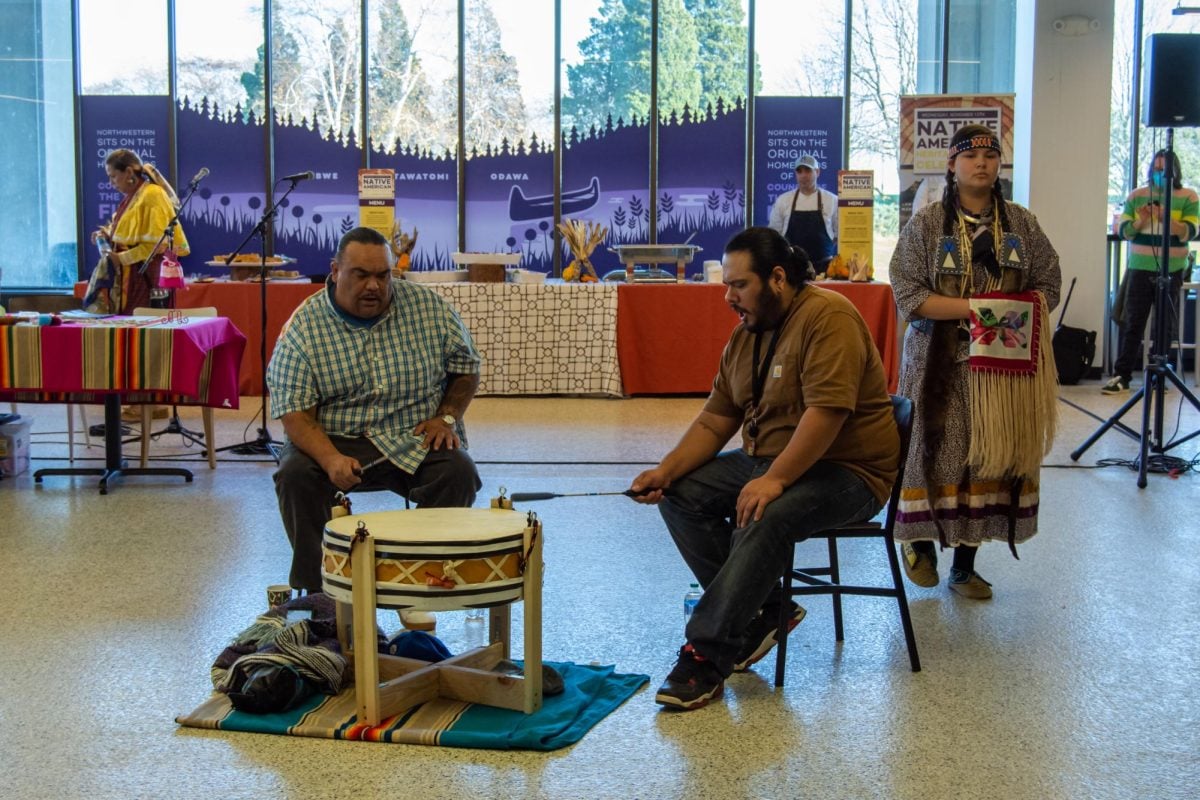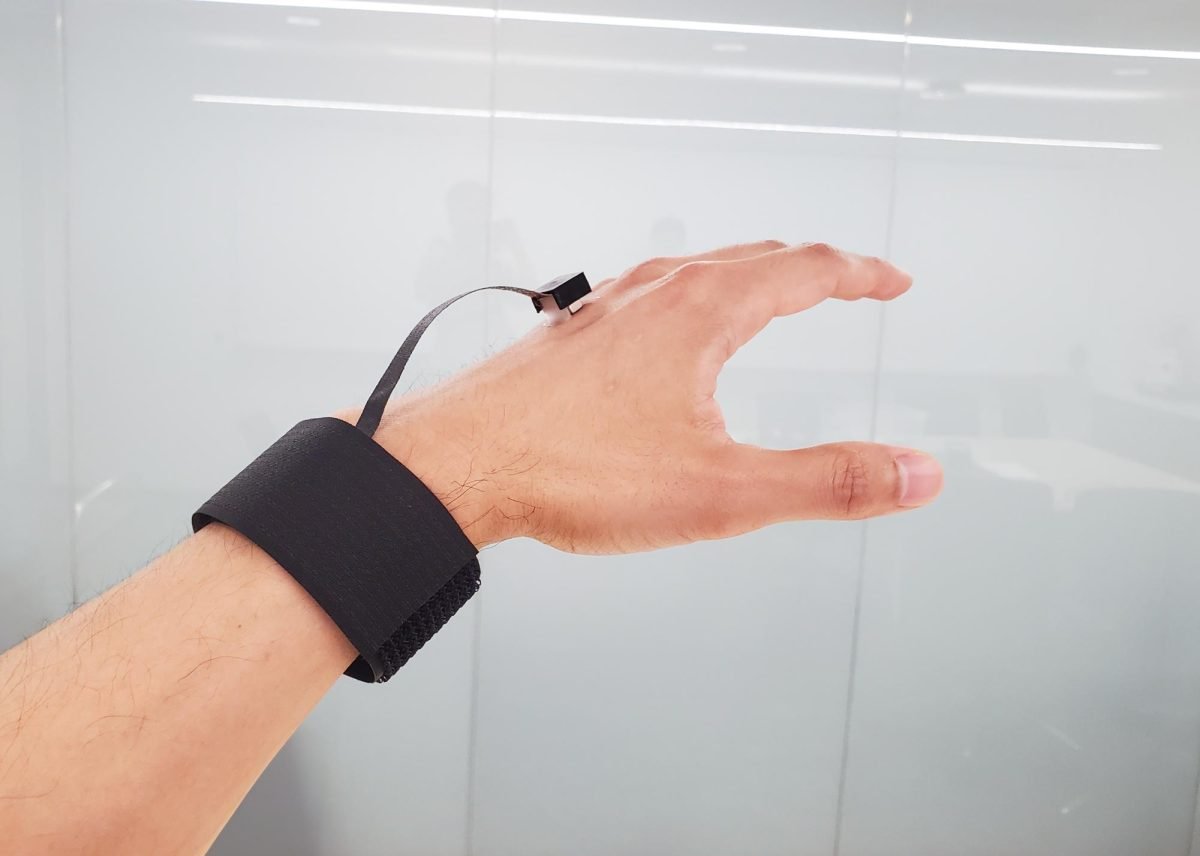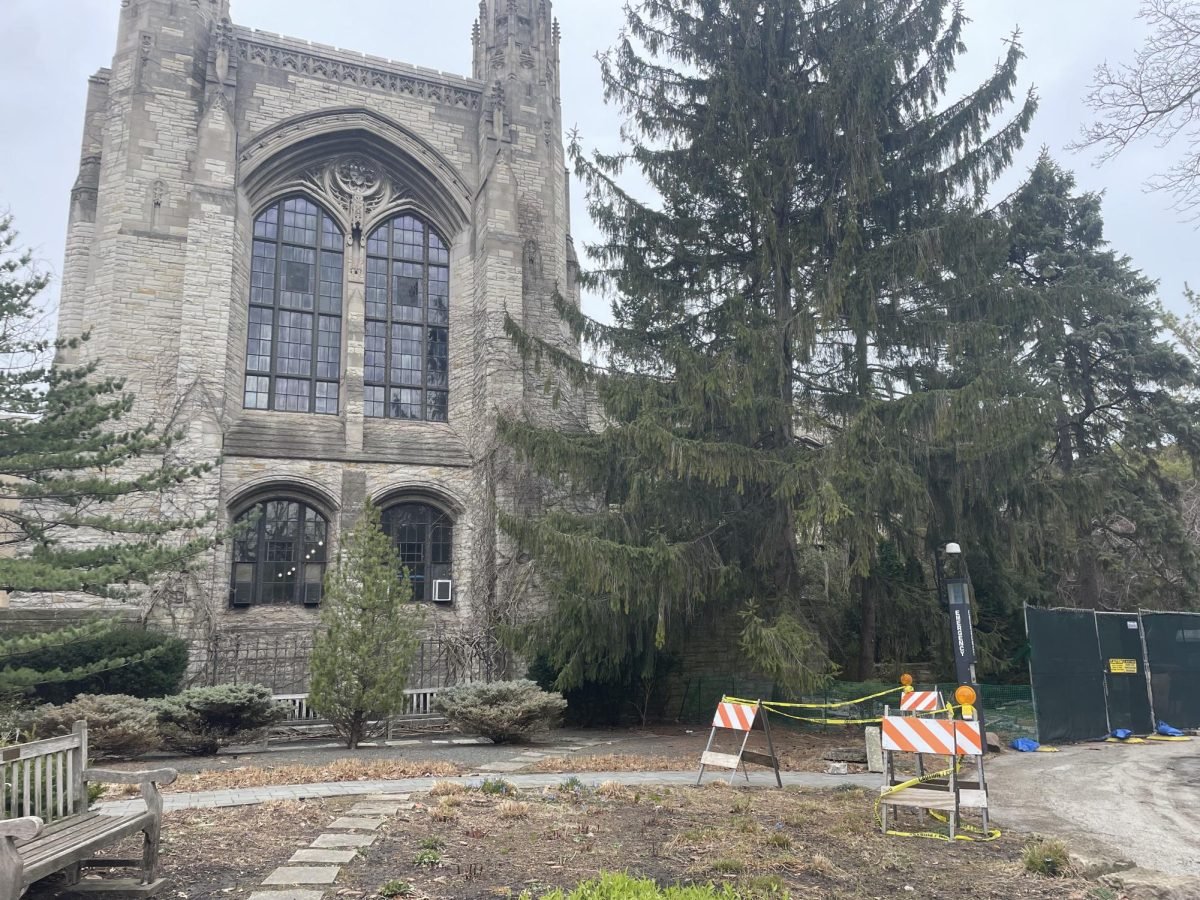Content warning: This story contains mentions of death and anti-Indigenous violence.
At Norris University Center on Wednesday, students could help themselves to food from a special buffet catered by Ketapanen Kitchen and enjoy a drum and dance performance. The event was part of Northwestern’s 30 Days of Indigenous series, which consists of various events and educational offerings for community members to learn more about the cultures and experiences of Indigenous people.
Ketapanen Kitchen Executive Chef Jessica Walks First created the menu for NU Dining’s Native American Heritage Celebration based on ingredients many Indigenous people use during the fall harvest season —cooking bison chili, harvest salad and pumpkin cornbread. Walks First visits many different colleges where she uses food and performance to educate students on the prevalence of Indigenous cultures.
“There are still so many misconceptions about our culture,” Walks First said. “For example, people eat Indigenous foods every day, but they don’t even know that. … Our contributions to society are more vast than they realize.”
For Weinberg junior and Native American and Indigenous Student Alliance co-chair Athena GoingSnake, a member of the Cherokee Nation and Muscogee Creek, the 30 Days of Indigenous series highlights visibility of Native American students on campus.
“We have this goal that we’re working towards to create visibility for ourselves, and having this month gives us a platform to do that,” GoingSnake said. “But in other months, I feel like it quiets down, especially with the media.”
As NAISA strives to maintain its visibility throughout the year, it works with administrators and other affinity groups on campus, as well as other Native American communities in the Chicago area.
GoingSnake serves as co-chair alongside Weinberg sophomore Olivia Bailey, a member of the Grand Traverse Band of Ottawa and Chippewa Indians.
Both hope administrators do more to recognize Native American and Indigenous communities on campus and to address the involvement of NU co-founder John Evans in the 1864 Sand Creek massacre against Arapaho and Cheyenne people in Colorado. They hope to see the University move beyond land acknowledgements to accomplish this.
“Sometimes I don’t think (land acknowledgements are) super genuine, because they’re not always talking about the reason why we had them or the meanings behind them about settler colonialism and then Northwestern as a colonial institution, which we all contribute to,” GoingSnake said.
NAISA, Multicultural Student Affairs and the Center for Native American and Indigenous Research will lead a procession on Nov. 20 recognizing the Sand Creek massacre.
Other upcoming events in the series include a discussion with MSA on Nov. 27, a presentation from MSA Associate Director Aaron Golding on Nov. 28 and an opportunity for craft-making at the Gender and Sexuality Resource Center on Nov. 29.
NAISA will then prepare for its annual spring Pow Wow, a cultural celebration during which members of different Indigenous communities come together to dance, eat and socialize.
Bailey encourages community members to recognize the importance of these events and the continued presence of Evanston’s Indigenous community.
“We’re still here, and I hope that a lot of the students here can gain a little bit more knowledge on Native Americans, our culture and what we do here at Northwestern,” Bailey said.
Email: edwardcruz2027@u.northwestern.edu
Twitter: @edwardsimoncruz
Related Stories:
— NAISA hosts second annual Pow Wow on Earth Day
— 30 Days of Indigenous celebrates histories and cultures
— NAISA commemorates 158th anniversary of the Sand Creek Massacre






